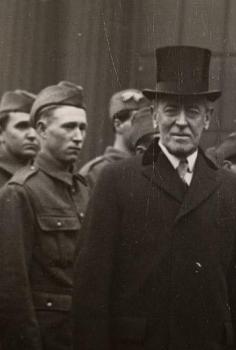Although medical personnel were already well aware of mental and neurological injuries commonly referred to as "shell shock," 1916 marked a turning point in which nations and militaries were forced to confront the destruction the War was causing on human minds. Indeed, by 1916, many perceived the "shell shock" of the War to be a casualty epidemic. This talk will examine the ways in which individuals came to understand the magnitude of the War's mental toll on both soldiers and nations and some of the most significant ways they attempted to mitigate the damage.






